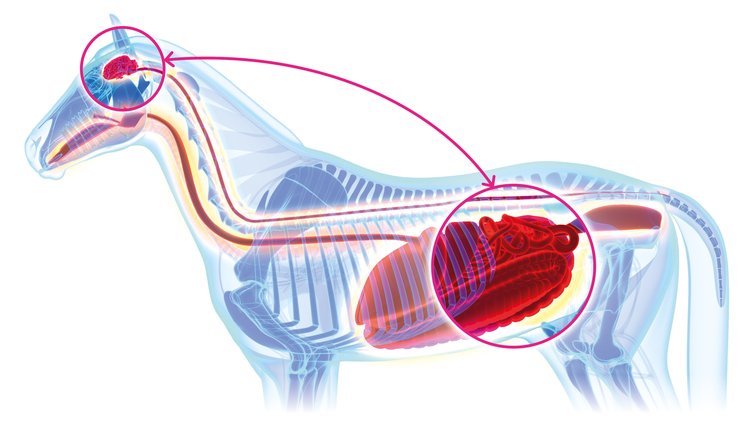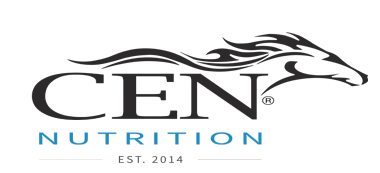The Latest Research On Faba Beans Supports Superior Nutrition For Horses
In the world of equine nutrition, finding the perfect balance between taste and health benefits can be a challenge. However, one often-overlooked superfood for horses is the humble Faba Bean. While commonly known as a human dietary staple, Faba Beans offer a huge benefits for our four-legged friends as well.
While Lupins, Soy, and Lucerne are familiar legumes in horse feed, Faba Beans are now gaining attention, especially for performance horses. Recent research highlights Faba Beans’ distinct nutritional profile, along with their prebiotic, antioxidant and anti-inflammatory properties, which can significantly enhance horse health and performance. (1)

The Benefits of Faba Beans For Horses – An Equine Superfood
Faba Beans (Vicia faba), also known as Tick Beans or Broad Beans, are an excellent source of vegetable protein for horse feed and offer vital nutrients and health supporting benefits. Highly palatable & digestible, Faba Beans provide horses with an energy level similar to traditional cereal grain feed. The quality of protein in Faba Beans is similar, if not in some crops superior, to their close legume counterparts the Lupin – with their lysine, methionine and leucine amino acid levels.
Making the Faba Bean profile attractive when incorporating into a grain free horse feed. The inclusion into feeds using the two parts – Faba Hulls (High Fibre) and Faba Kernels (High Protein), to achieve a very nutritious macro nutrient profile. This quality protein is necessary for muscle development, repair and overall body function.
Faba Beans are far from a one trick pony. Numerous recent studies have delved into the nutritional and bioactive aspects of Faba Beans. Faba Beans exhibit a wide array of health-promoting bioactive properties, attributed to their peptides. These include antioxidant, anti-inflammatory, and antimicrobial activities. (1)(2)(3)(4)(11)
The Faba Bean boasts several competitive advantages over Soy and Lupins. Not only is it a highly nutritious, but it is also non-genetically modified (non-GMO) and not considered a regulated allergen. Additionally, the Faba Bean besides the bioactive peptides, contain various bioactive compounds known for their health-enhancing properties, including phenolic compounds, resistant starch, dietary fibres, non-protein amino acids like L-DOPA and GABA. (1)(2)(3)(4)(11)
Gut Health and Digestive Support
Maintaining optimal gut health is crucial for horses’ overall well-being, as digestive issues can lead to various health problems in horses. Faba Beans have a stronger prebiotic effect compared to other legumes because of their high fibre content and resistant starch, which gets fermented into short-chain fatty acids instead of rising insulin levels.
When Faba Beans are raw, they contain rapidly digestible starch (15.3%), slowly digestible starch (34.5%), and resistant starch (46.7%). Both slowly digestible and resistant starch contribute to a low glycemic index, which doesn’t cause an insulin response. (5)(6)
Resistant starch, in particular, acts as a prebiotic, meaning it’s not digested in the small intestine but gets fermented by gut bacteria in the hindgut into short-chain fatty acids. Fermentation plays a crucial role in sustaining a balanced microbiome (the community of bacteria in the gut that promotes overall health and immunity), regulating body temperature, releasing energy, and absorbing nutrients. This process also brings health benefits including reduced inflammation and supporting hormone production. By nourishing the hindgut of the horse and supporting the microbiome, helps the gut-brain axis. The gut-brain axis consists of bidirectional communication between the central and the enteric nervous system, linking emotional and cognitive centres of the brain with peripheral intestinal functions. (5)(6)(10)

Energy Boost without the Risks
One of the most significant advantages of feeding faba beans to horses is their energy-boosting properties without the associated risks of starch overload. Unlike traditional grain sources like corn or barley, Faba Beans have a lower starch content and a higher proportion of complex carbohydrates including resistant starch which provides a sustained energy release without spiking blood glucose levels.
Short chain fatty acids, which result from the breakdown of fibre and resistant starches in the hindgut, serve as a beneficial energy source that is promptly utilised rather than stored as fat. They offer a gradual release of energy, preventing spikes in excitability and reactivity in horses. Moreover, there is no associated insulin spike with this energy release. (5)(6)
This energy efficiency is particularly advantageous for performance horses. Endurance performances including eventing, demand sustained high energy levels. Short chain fatty acids suit these horses perfectly, facilitating a steady energy release without the fluctuations associated with sugar spikes and crashes.
By offering a steady and controlled energy source, Faba Beans can support sustained stamina and performance in equine athletes without the risk of digestive upset or metabolic imbalances.
Another Advantage
Faba Beans possess another advantage over other legumes like Soy beans. One notable benefit is their low levels of anti-nutrients, such as protease inhibitors and goitrogens. Protease inhibitors can interfere with protein digestion, reducing the availability of essential amino acids, while goitrogens can disrupt thyroid function if consumed in large quantities. By containing minimal amounts of these compounds, Faba Beans offer a safer and more digestible source of nutrients for horses.
Another aspect is Tannins. Which are found present in all legumes including Soy and Lupins. They are anti-nutritive compounds that affect palatability and digestion. For Faba Beans, the use of the low tannin (zero tannin) variety is recommended. Heat during the feed pellet formation also greatly reduces any anti-nutritional factors. (7)(8)

Environmental Sustainability
Beyond their nutritional benefits, Faba Beans also offer environmental advantages compared to other feed crops. As legumes, Faba Beans have the unique ability to fix atmospheric nitrogen through symbiotic relationships with nitrogen-fixing bacteria in the soil. This reduces the need for synthetic nitrogen fertilisers, decreasing the environmental impact of agricultural production. These characteristics make them a more sustainable option for equine feed production. (9)
Conclusion
The emergence of Faba Beans as a highly beneficial option for horse health & performance. This latest research represents a significant development in equine nutrition. With its unique nutritional profile, prebiotic properties, and anti-inflammatory attributes, Faba Beans offer a healthy alternative to other legumes like soy and lupins.
The non-GMO nature of Faba Beans, coupled with the recent research has shed light on the myriad health benefits of Faba Beans, making Faba Beans a standout choice for promoting horse health and performance.
Written By Bryan Meggitt (BMedSc. PGCrtMedSc.)
Blood Scientist and Co-founder of CEN Horse Nutrition
References:
- Martineau-Côté D, Achouri A, Karboune S, L’Hocine L. Faba Bean: An Untapped Source of Quality Plant Proteins and Bioactives. Nutrients. 2022 Apr 7;14(8):1541. doi: 10.3390/nu14081541. PMID: 35458103; PMCID: PMC9025908.
- León-Espinosa, E.B.; Sánchez-Chino, X.; Garduño-Siciliano, L.; Álvarez-González, R.I.; Dávila-Ortiz, G.; Madrigal-Bujaidar, E.; Téllez-Medina, D.I.; Jiménez-Martínez, C. Hypocholesterolemic and Anticarcinogenic Effect of Vicia faba Protein Hydrolyzates. Nutr. Cancer 2016, 68, 856–864.
- Sánchez,A.;Vázquez,A. Bioactive peptides: A review. FoodQual.Saf. 2017,1,29–46.
- Ganesan, K.; Xu, B. Polyphenol-Rich Dry Common Beans (Phaseolus vulgaris L.) and Their Health Benefits. Int. J. Mol. Sci. 2017, 18, 2331. https://doi.org/10.3390/ijms18112331
- Ramdath D., Renwick S., Duncan A.M. The Role of Pulses in the Dietary Management of Diabetes. Can. J. Diabetes. 2016;40:355–363. doi: 10.1016/j.jcjd.2016.05.015.
- Kauter A, Epping L, Semmler T, Antao EM, Kannapin D, Stoeckle SD, Gehlen H, Lübke-Becker A, Günther S, Wieler LH, Walther B. The gut microbiome of horses: current research on equine enteral microbiota and future perspectives. Anim Microbiome. 2019 Nov 13;1(1):14. doi: 10.1186/s42523-019-0013-3. PMID: 33499951; PMCID: PMC7807895.
- Johnson JB, Skylas DJ, Mani JS, Xiang J, Walsh KB, Naiker M. Phenolic Profiles of Ten Australian Faba Bean Varieties. Molecules. 2021 Jul 30;26(15):4642. doi: 10.3390/molecules26154642. PMID: 34361795; PMCID: PMC8348165.
- Ojo MA. Tannins in Foods: Nutritional Implications and Processing Effects of Hydrothermal Techniques on Underutilized Hard-to-Cook Legume Seeds-A Review. Prev Nutr Food Sci. 2022 Mar 31;27(1):14-19. doi: 10.3746/pnf.2022.27.1.14. PMID: 35465118; PMCID: PMC9007702.
- Karkanis A, Ntatsi G, Lepse L, Fernández JA, Vågen IM, Rewald B, Alsiņa I, Kronberga A, Balliu A, Olle M, Bodner G, Dubova L, Rosa E, Savvas D. Faba Bean Cultivation – Revealing Novel Managing Practices for More Sustainable and Competitive European Cropping Systems. Front Plant Sci. 2018 Aug 2;9:1115. doi: 10.3389/fpls.2018.01115. PMID: 30116251; PMCID: PMC6083270.
- Mach N, Lansade L, Bars-Cortina D, Dhorne-Pollet S, Foury A, Moisan MP, Ruet A. Gut microbiota resilience in horse athletes following holidays out to pasture. Sci Rep. 2021 Mar 3;11(1):5007. doi: 10.1038/s41598-021-84497-y. PMID: 33658551; PMCID: PMC7930273.
- Gullón, Beatriz & Gullón Estévez, Patricia & Tavaria, Freni & Vasconcelos, Marta & Gomes, Ana. (2015). In vitro fermentation of lupin seeds (Lupinus albus) and broad beans (Vicia faba): Dynamic modulation of the intestinal microbiota and metabolomic output. Food Funct.. 10.1039/C5FO00675A.

